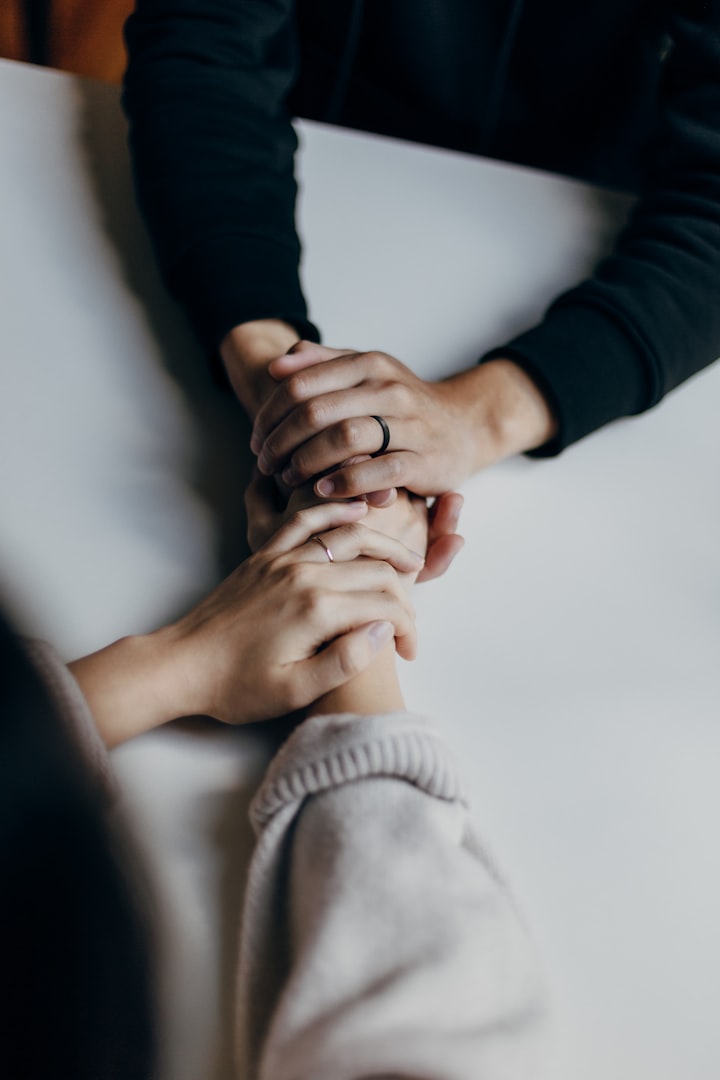What happens after listening?
We say we just need people to listen, but is that really what we mean?

"I just need you to listen to me. I don't need you to fix the problem."
It's a common enough statement, but I don't exactly love it. I've been trying to reconcile the conflict about whether it's more helpful to listen to people talk about their problems or if it's more helpful to try and fix the problems.
As is almost always the case, the answer isn't simple.
To do a quick stereotype, men tend to like to fix problems, and sometimes women respond by saying, "I don't need you to fix it. I just need you to listen." (Obviously, there are plenty of exceptions to the stereotype.)
But sometimes we do need someone to help us fix the problem. Please note the following hilarious video "It's not about the nail."
There is a time to take out the nail, and there's a time to listen.
But I think people mean something more when they say they just need someone to listen to them. And it has to do with the response of the listener.
The power of listening
I do acknowledge that someone sitting down and truly listening to you talk about your struggles is a powerful action.
Me? I'm a verbal processor. I think through things by talking about them. It lets me explore my options and come to a logical conclusion. Someone who listens and can offer feedback on my ideas? Immense blessing.
Listening is a critical skill that a lot of society has lost. We're surrounded by noises and distractions. Our phones alone keep us from seeing the person right in front of us that's hurting.
To effectively listen, we need to get rid of these distractions. And for our listening to truly make a difference, it needs to active rather than passive.
The distinction between passive and active listening
This is a classic distinction, but it's one that I still want to point out. When we passively listen to something, one could argue that we aren't listening at all.
In passive listening, we aren't engaged with what we are listening to. It's like having music on in the background. You can hear it, but your focus isn't on it. Five minutes later, you couldn't list what songs you heard.
When we actively listen, we devote our full attention to what we are listening to. We might even ask questions to clarify that we understand, and we will retain the information far better. When we actively listen, we should be able to repeat in our own words what the speaker has told us.
The simplest example is when you go out for coffee with a friend. She scrolls through her phone as you talk about your day. You feel ignored. But if she puts her phone in her purse and devotes her full attention to the story you are telling, you feel cared about and respected.
But the step of making a true impact involves even more than actively listening. The final piece to the puzzle is how we respond as listeners.
Our response
How we respond after listening will change based on the situation. Our ultimate goal should be to respond in compassion and love.
Sometimes that means sitting with someone and letting him talk about his problems without offering advice. Other times it will mean holding her hand and letting her cry out the emotions that she has been holding back for far too long.
The response doesn't have to be complicated to be a response of compassion. Sometimes the response is subtle and other times it involves taking direct action to alleviate the problem.
I was inspired to write this piece after texting one of my friends. (This was back in November. That's backburner ideas for you.) I had mentioned that my family was stuck in quarantine. Living at a my apartment, I wasn't in quarantine, but I still couldn't go visit my family. I mentioned that I felt lonely, but I tried to emphasize that I was getting through it.
He sent me back a simple audio message saying that he would be happy to get a group of our friends together if I needed that or that he would be glad to call and talk if I needed someone to talk to.
Even though I already had weekend plans, his simple gesture of kindness helped me remember that I wasn't alone. He listened and responded with compassion.
I think most of the time, what we're really asking for from people when we ask them to "just listen" is for them to read the situation and respond in a way that is comforting. We're asking people to be aware of our needs.
And we are asking them to understand that sometimes their response simply has to be one of being there for us as we work through something. We're reminding them that the response doesn't have to be big for it to make an impact.
So, yes, listen. Listen and then seek to respond in compassion and love.

Thanks for reading. If you liked what you read, consider subscribing, pledging, leaving a heart, or giving a tip.
If you would like to receive regular updates on my work, please email me at [email protected] and ask to be added to my email list.
About the Creator
Jessica Freeborn
Passionate writer that is enthusiastic about writing engaging, compelling content. Excels in breaking down complex concepts into simple terms and connecting with readers through sharing stories and personal experience.






Comments
There are no comments for this story
Be the first to respond and start the conversation.